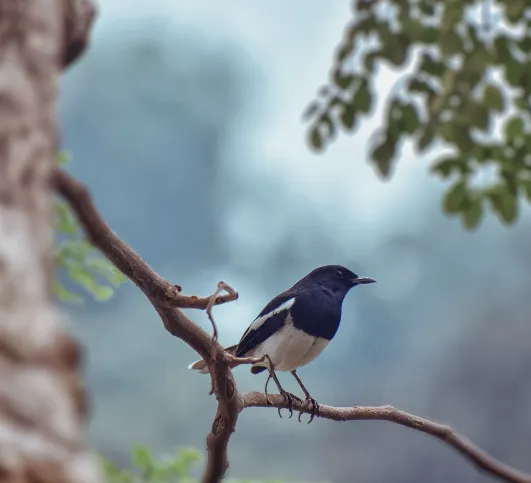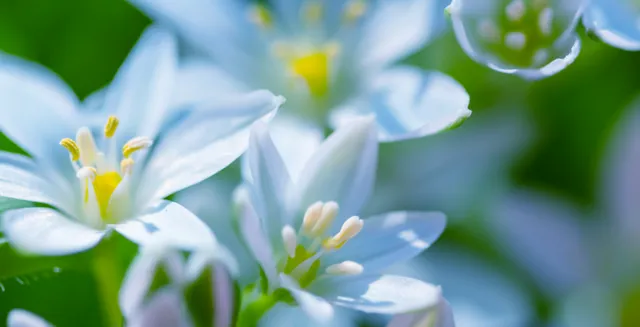▲ 關註 ,讓詩歌點亮生活

【詩刊】中國詩歌網 x 英國劍橋康河出版社
漢詩英譯 第43輯
譯者 | 秦尊璐、遊心泉、彼得·休斯
作者 | 王夫剛、李郁蔥、青蓖、劉暉、希冀
詩評 | 彼得·休斯 Peter Hughes, 李玥 譯

這五首詩探討了飛行和逃避的吸重力。
將山區和科技發達的地方聯系在一起並不常見,但在王夫剛的詩【天盡頭,天無盡頭】中,作者帶讀者進入了搭乘高鐵樞紐輕松逃離那裏的夢境。我們能否外出度個輕松的周末,或者度個更長的假期,接納 「 現實的修辭 」 ,向東走,去 「 天空的盡頭 」 , 「 慰藉他鄉 」 ?這首詩還贊美了設計和建立這種高科技基礎設施的所涉及到的團隊合作: 「 一群人總是比一個人想得周到。 」
天盡頭,天無盡頭
王夫剛
新的鐵路建成,朝發夕至被腰斬
山上分娩出的高鐵站
月台幾無新意,降到第四層
才能置身車站與城市的
接駁處,倒是有點想象力
臨近周末的陽光,現實的修辭
慰藉著他鄉——那裏
據說一語成讖,東巡
幾度淪為意外之旅——
天盡頭,不得不短暫地更名為天無盡頭
一群人總是比一個人想得周到
End of the Sky, Endless Sky
by Wang Fugang
They built the new railway and time was halved
A high-speed rail hub in the mountains
A bog-standard platform relegated to the fourth floor
Where you find the connections between station and city.
This has a more imaginative design.
Sunlight approaches the weekend with its rhetorics of reality
The consolations of a foreign land – there, it’s said
A single word becomes prophetic, eastward journeys
Turning into unexpected trips –
‘The end of the sky’ is briefly renamed ‘Endless sky’
The group knows more than one person ever can.
秦尊璐、Peter Hughes 譯
在李郁蔥的作品【小燕尾鳥】中,描寫的是一只動人小鳥的飛行。這種生物總是搖擺著它的尾巴,掠過水面,呼喚它的伴侶,最後消失在樹林中。詩人疑惑,它為何會擺動它的尾巴?是天性所致還是後天養成?它是有意為之還是只是在顯擺?本詩思考了人類和鳥類之間的親緣關系。我們是否擁有同樣的愉悅感受?它的靈魂呢?重量會有多少?透過對靈魂的探討,該詩引發了一個永恒的人類問題:我們終將歸於何處。 從根本上來看, 這首詩是關於生命的意義的,無論是鳥還是人的生命。
小燕尾鳥
李郁蔥
不斷搖擺的尾巴,小小的禮貌
出於動物本能的一種姿態
炫耀?或僅僅是笨拙中的表達
像它叫聲裏藏著的森林
剪去一陣陣風,這雀鳥的喜悅
和我的喜悅是否一樣?肉體
能夠感知到的這些,在密林之間
它遵循於果腹和饑餓
從清澈的水面上一掠而過
它有點水的心?恍若
一道輕微而不被註意的光
但我看見,在巖石之上
它婉轉召喚著那看不見的同伴:
隱形伴侶,它的靈魂有幾克
是否比我的更加深邃?
在我不註意的時候,它沒入山林
Little Swallowtail
by Li Yucong
Constantly wagging tail, little courtesies
A gesture based on instinct
Just showing off? Or an expression of awkwardness
Like the forest hidden in its song
Cut from the dance of the winds, is this bird's joy
The same as mine? We sense
These things deep in the dense forests
Following the rhythms of fullness and hunger
Skimming over clear water
Is its substance that of water, as if it were
Reflections of a slight, unnoticed light?
Yet I saw it, perched on a rock
Calling gently to an unseen companion
An unseen partner, how many grams does its soul weigh
Is it greater than mine?
When I wasn’t looking it disappeared into the forest
秦尊璐、Peter Hughes 譯

在第三首詩【喜鵲】中,青蓖延續了鳥類的主題。開篇的幾行詩句描寫了喜鵲醒目的黑白色羽毛和巨大的身型。我們也一同共享了它日常生活中的小片段。它飛越湖泊尋找食物,最後停棲在建築物旁的一棵樹上。雨水打濕了樹枝的表面,我們意識到,鳥兒為求生存所面臨的困難和危險。在詩歌的結尾,詩人提醒我們:喜鵲為我們的世界增添了趣味和活力。
喜 鵲
青 蓖
其中有一只喜鵲身形尤大
它飛出灌木,用勻速展示
黑白形成的弧形
長尾張開,雙翅鼓動
越過湖水飛向東面
停棲在門口的懸鈴木或玉蘭樹
它們結滿果實,充滿墜落的擔憂
雨露也在增添危機
只有喜鵲帶來新的寓意
和新的抉擇。舊去的一天
擴散到傍晚的薄光裏
就要失去形狀
Magpie
by Qing Bi
One of the magpies is huge
It flies from the bush displaying a steady
black-and-white arc
Long tail spread, wings beating
It crosses the lake towards the east
to then perch on wisteria or magnolia by the door
They are full of fruit and anxiety of falling
Rain and dew are adding to the crisis
But the magpie brings new hope
new choices to an old day
spread into the thinning light of evening
and about to lose its shape
遊心泉、Peter Hughes 譯

劉暉的詩作【燃燒】是一首充滿活力的詩歌,觸及了逃避、和平糊超越等主題。與我們本輯的第二首詩一樣,它也提到了 「 靈魂 」 。這篇作品以巨大的能量開篇:夏天樹木上的生命、蟬鳴的聲音、河流的巨浪沖擊著它的堤岸。
燃 燒
劉 暉
夏日的綠色火焰,
在山谷裏燃燒,空氣嘶嘶發抖,
連蟬也驚駭於自己無休止的預言。
河流用內心的波浪
撞擊著防波堤,一遍又一遍,
仿佛是要用身體的疼痛,來感知靈魂的存在。
一個少年在風中疾跑,
當他回望的時候,
樹木跑得比他還快。
遠處,哐當哐當的火車
正在換軌。
這些迷人的詩句引出了詩歌中的主角,一個奔跑著的少年。他 「 在風中疾跑 」 ,當他回頭望時,發現樹木似乎也在追趕他。他永遠無法逃離周圍環境。接著,遠處傳來火車換軌的聲音,提醒我們當代世界中存在著的其他強大自然力和存在體。
Burning
By Liu Hui
Green flames of summer
burn in the valley, the air hisses and trembles
even cicadas are startled by their endless prophecies
The river crashes against the breakwater
with its inner waves, time and again
as if the pain of its body could detect the existence of the soul
A young man is running in the wind
When he looks back
The trees are outrunning him
In the distance the clanking train
is switching tracks
遊心泉、Peter Hughes 譯

第五首詩,也是最後一首詩,是希冀的【開花的萬年青】。標題中的萬年青似乎總在那裏,每天的變化也很小。但突然間,它被淡白色的花朵覆蓋,我們也意識到沒有什麽事情能長存不變。這種轉變讓詩人想起了過去的一個女子。那天對她來說是個特別的日子,就像開花對於植物而言也是一個特別的時刻一樣。她精心打扮,穿上最好看的衣服,但詩人記不起是因為何事了,只記得那一瞬間的閃耀動人,以及她的模樣。詩歌以母親安靜微笑的舊照片結束。相片正在慢慢褪色。或許,他提及的那個年輕女子,是他多年前的愛人:
屬於她的,很少的明亮瞬間
就像這淡白色的小花,靜靜地
在蒙灰的舊枝葉中,亮著
這是一個淒涼而又美好的時刻,提醒我們沒有人能欺騙時間。
開花的萬年青
希 冀
日子像這株經年的萬年青
習慣於蒙灰,滋長,滋長,蒙灰
某一天,竟開了花
淡白色的小朵,閃著光
我那麽容易就想到了剪發的她
那天換了一身半新的西服,一雙
黑皮鞋,用一只黑棍小發夾
把頭發別到耳後。她那天
去做什麽呢?我實在記不起
屬於她的,很少的明亮瞬間
就像這淡白色的小花,靜靜地
在蒙灰的舊枝葉中,亮著
我的母親,她也悄悄地
在褪色的老照片中,笑著
Blossoming Evergreen
by Xi Ji
Days are like this everlasting evergreen
accustomed to dust and growth, growth and dust
But one day it unexpectedly blossoms
With pale white flowers shimmering with light
So I thought of her with her new haircut
That day she wore a nearly-new suit
Black shoes, hair pinned back behind her ear
with a small black clip. That day
what was she going to do? I really can't remember
Her few bright moments like those of
These pale white blossoms, quietly shining
among the dusty old branches and leaves
My mother also quietly smiles
in the old fading photos
遊心泉、Peter Hughes 譯
Introduction to Batch 43
The attractions of flight and escape are explored in these five poems. We do not always associate the mountains with a place of technological advances, but in Wang Fugang’s poem ‘End of the Sky, Endless Sky’ the reader is invited to dream of an easy escape through the high-speed rail hub there. Could we travel away for a relaxing weekend, or a longer holiday, embrace the ‘rhetorics of reality’ to head east, to the ‘end of the sky’ and the ‘consolations of a foreign land’? The poem also celebrates the teamwork involved in designing and creating such high-tech infrastructure: ‘The group knows more than one person ever can.’
They built the new railway and time was halved
A high-speed rail hub in the mountains
In ‘Little Swallowtail’ by Li Yucong the flight in question is that of an appealing bird. This creature is always wagging its tail, skimming over water, calling to its mate and eventually vanishing into the trees. But why, the speaker asks, does it wag its tail? Is it nature or nurture? Does it have a purpose or is the bird just showing off? The poem wonders about the kinship between human and bird. Do we have the same sense of pleasure? And what about its soul? How much might it weigh? By speaking of the soul, this poem raises the timeless human question of our ultimate destination.
Cut from the dance of the winds, is this bird's joy
The same as mine?
Ultimately the poem is about the meaning of life, whether it be the life of a bird or a person.
We continue with the bird theme in poem three, ‘Magpie’ by Qing Bi. The dramatic physicality of the bird and its striking black and white plumage are evoked in the opening lines. We are also invited to share in the everyday dramas of its life. It traverses a lake in search of food and ends up by a building, in a tree. The rain has made the surfaces slippery and we are made aware of the difficulties and danger of the bird’s struggle to survive. At the end the poet reminds us that the magpie adds to the interest and vitality of our world.
But the magpie brings new hope
new choices to an old day
‘Burning’ by Liu Hui is a poem full of energy which touches on the themes of escape, peace and transcendence. As with our second poem, it refers to ‘the soul’. This piece starts with tremendous energy: the life in summer trees, the sounds of the cicadas, the powerful currents of a river pushing against its boundaries.
The river crashes against the breakwater
with its inner waves, time and again
as if the pain of its body could detect the existence of the soul
These fascinating lines bring us to the human protagonist of the poem, a human runner. The man is ‘running in the wind’ but when he looks back it seems that the trees are keeping up with him. He can never escape his surroundings. Then the sound of a train in the distance as it changes tracks reminds us of other powerful forces and presences in the contemporary world.
The fifth and final poem from our selection is ‘Blossoming Evergreen’ by Xi Ji. The evergreen plant of the title seems to be always there, changing little from day to day. But then suddenly it is covered in pale flowers and we are reminded that nothing stays the same for long. This transformation makes the speaker of the poem remember a woman from the past. It was a special day for her, just as the blossoming is a special time for the plant. She dressed with care in her best clothes but the speaker cannot remember the reason. He just remembers the luminous beauty of the moment, and how she looked. The poem ends with old photos where the speaker’s mother quietly smiles. Even the photographs are fading away. He says of the young woman, perhaps a lover from years ago:
Her few bright moments like those of
These pale white blossoms, quietly shining
among the dusty old branches and leaves
It is a poignant and beautiful moment when we are reminded that no one can cheat time.
Peter Hughes
UmbriaDecember 2023

國際詩歌評論人 | 彼得·休斯
詩人、創意寫作教師,現任英國劍橋康河出版社資深文學編輯、劍橋徐誌摩詩歌藝術節編委。2013年,他的詩歌選集與【對特殊事物的直覺:彼得·休斯詩歌評論集】(‘An intuition of the particular’: some essays on the poetry of Peter Hughes)同時由Shearsman出版社出版。他根據意大利經典創作了【十分坦率】(Quite Frankly,Reality Street出版社)、【卡瓦爾康蒂】(Cavalcanty,Carcanet出版社)、【via Leopardi 21】(Equipage出版社)等眾多充滿創意的作品,廣受好評。 彼得是劍橋大學英語系朱迪斯·韋遜詩歌基金獲得者、客座專家,劍橋大學莫德林學院在詩歌領域的客座院士。近期出版的作品包括:2019年的【柏林霧沫】(A Berlin Entrainment,Shearsman出版社)、2020年的【畢士大星座】(Bethesda Constellations,蠣鷸出版社)等。
欄目介紹
「漢詩英譯」欄目自2018年10月啟動至今,現已完成第一階段的轉譯工作,與美國同道出版社合作,從【詩刊】和中國詩歌網「每日好詩」中精選800余首詩歌譯成英文,推動當代中文詩歌走向世界。
從2022年4月起,中國詩歌網與劍橋康河出版社合作開展漢詩英譯工作。
轉譯團隊為劍橋康河詩社,它是英國劍橋康河出版社(Cam Rivers Publishing) 旗下的詩歌轉譯與編輯團隊,由英國國家學術院院士、劍橋大學社會人類學教授、劍橋徐誌摩詩歌藝術節創始人艾倫·麥克法蘭(Alan Macfarlane) 擔任主席。團隊由英國資深詩人與文學編輯彼得·休斯 (Peter Hughes)、露西·漢姆爾頓 (Lucy Hamilton),以及其他多位畢業於劍橋大學和其他知名高校的譯者與學者組成。
「漢詩英譯」每期釋出五首漢英對照詩歌,並附國際詩人的點評,同步在中英兩國推出,歡迎各位詩友關註和批評!
詩歌寫作訓練營學員招募中!
7位詩人教你寫現代詩
訂閱2024全年【詩刊】
綜合自:【詩刊】社、中國作家網等
如何投稿 ✦
每日好詩
登入中國詩歌網 www.zgshige.com, 免費註冊即可投稿! 入選「每日好詩」,獲稿費和專家點評,有機會登上【詩刊】。
編輯:王傲霏,二審:曼曼,終審:金石開











